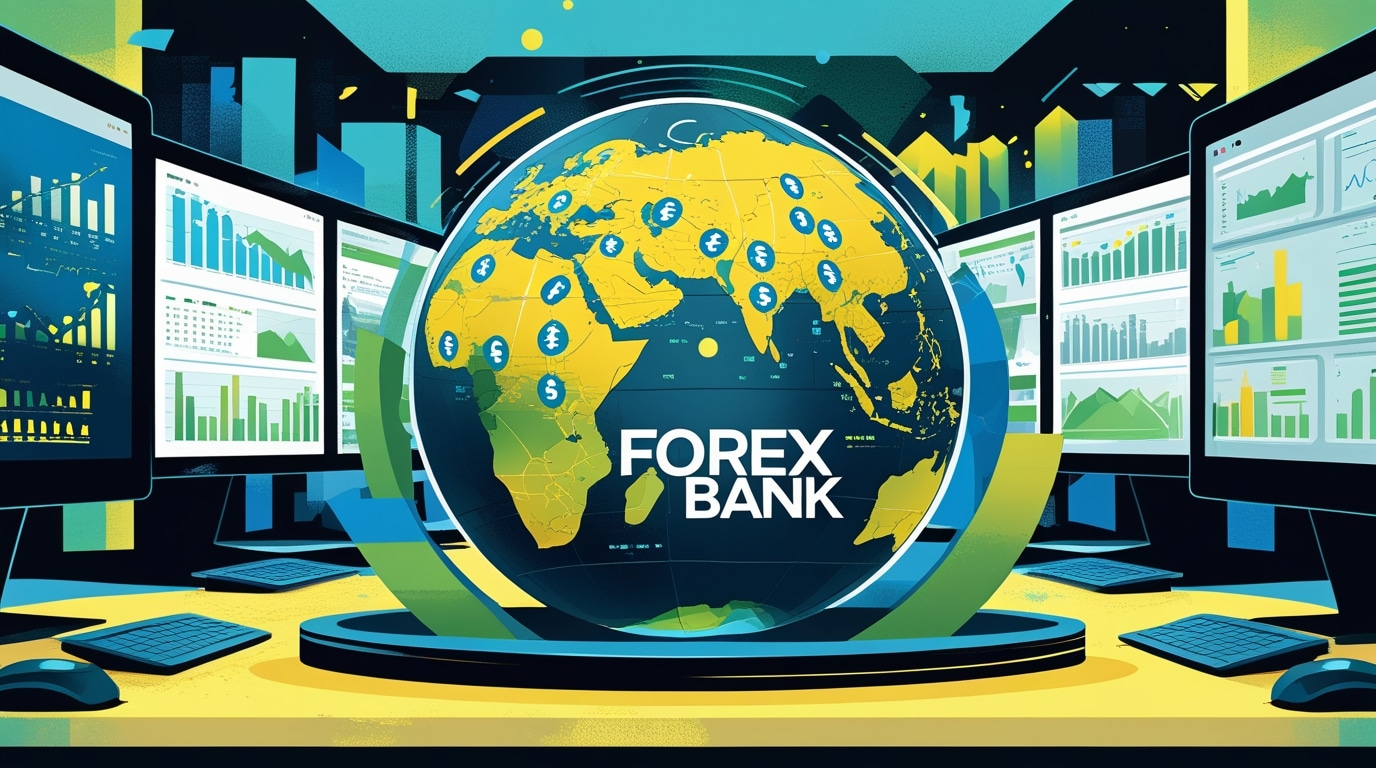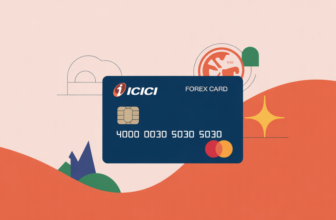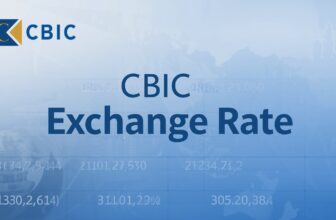
A forex bank is more than just a place to swap one currency for another. In essence, it refers to a financial institution specializing in foreign exchange – from exchanging travel money to facilitating massive currency trades. These banks play a pivotal role in the global financial system by enabling currency conversion for travelers, businesses, and even governments. The term can apply broadly to major banks dealing in foreign exchange, as well as to specialized currency exchange banks like the aptly named Forex Bank in Sweden. In this article, we will explore what forex banks are, how they function worldwide, and examine Forex Bank Sweden as a case study. We’ll also highlight how forex banks differ from regular banks, the services they provide (from remittances to travel cash), and why they remain crucial in today’s economy.
What Is a Forex Bank?
A forex bank is a bank or financial institution that focuses on foreign exchange (FX) services. This can range from large commercial banks trading currencies on the interbank market, to specialized retail banks that cater to individuals needing currency exchange. Foreign exchange is sometimes called the lifeblood of global commerce – in fact, “foreign exchange is the largest and most liquid financial market, with nearly $10 trillion changing hands daily. It’s the underpinning for global trade and finance”. In other words, forex banks help make international transactions possible by providing the infrastructure to swap currencies.
Functions and Role in the Financial System:
Forex banks serve several key functions in the financial system: they provide liquidity for currency conversion, set exchange rates for customers, and manage currency risk. Major banks participate in the global FX market to facilitate trades for clients and for their own accounts. For example, big banks act as dealers for corporations or travelers who need currency, profiting from the bid-ask spread (the difference between buying and selling price) on each transactioninvestopedia.com. Central banks also interact with forex banks when implementing monetary policy, since currency values can be influenced by interest rate changes and interventions. In sum, forex banks are at the heart of foreign exchange operations – connecting different currencies and enabling money to move across borders efficiently.
Forex Bank Sweden: History, Services, and Impact
One prominent example of a specialized forex bank is FOREX Bank AB in Sweden (often simply called Forex Bank). Founded as a small currency exchange office in 1965, it has grown into a household name in Scandinavia for travel money services. Forex Bank’s origins trace back to a travel agent named Rolf Friberg, who took over a currency exchange booth at Stockholm’s Central Station. For decades thereafter, Forex was “the only one that, alongside the banks, had permission from Sveriges Riksbank to trade in foreign exchange” – essentially the sole non-bank entity allowed to do currency exchange in Sweden. This unique position helped Forex Bank become synonymous with currency conversion in the region.
Services and Growth: Over time, Forex Bank Sweden expanded beyond simple cash exchange. It became an authorized bank in 2003 and began offering basic banking products like deposit accounts, loans, payment cards, and money transfers. At its peak as a bank, it operated over 80 branches across the Nordic region, often in prime locations such as railway stations, airports, and shopping districts. This widespread presence made it incredibly convenient for travelers and locals alike to buy or sell foreign banknotes. Forex Bank also partnered with international networks to facilitate remittances – for example, acting as an agent for Western Union’s money transfer services. By consistently focusing on currency services, the company became the Nordic market leader in travel currency, a position it still prides itself on.
Adapting and Impact on the Scandinavian Market: In the Scandinavian market, Forex Bank’s impact has been significant. It normalized the idea of a dedicated currency exchange outlet separate from traditional banks. Many Swedes and tourists came to rely on Forex Bank for competitive exchange rates and convenient service when obtaining holiday cash or sending money abroad. The bank’s model proved so successful that in the 1990s and early 2000s it expanded into neighboring Finland, Denmark, and Norway, exporting its expertise in retail forex to those countries. However, the banking landscape changed in the 2010s with increasing digitalization and competition. In 2021, Forex Bank made a strategic move: it surrendered its banking license and rebranded back to “FOREX”, transferring most deposit and loan services to another bank (ICA Banken). This shift allowed Forex to refocus on its core strength – foreign exchange services – without the regulatory burdens of full-scale banking. Today, Forex Bank (now just FOREX) continues to facilitate currency exchange, offer a travel-focused credit card, and serve customers across Scandinavia, maintaining a trusted brand built over decades.
Differences Between Forex Banks and Traditional Banks
While many traditional banks offer foreign currency services, a forex bank stands apart in its specialization. Here are a few key differences:
- Core Focus: A forex bank primarily concentrates on currency exchange and related services, whereas regular commercial banks provide a wide array of services (loans, mortgages, etc.) with foreign exchange being just one department. In a typical bank’s forex department (often referred to as bank forex services), currency exchange is a side offering; in a forex bank, it’s the main business.
- Range of Currencies: Specialized forex banks or bureaus usually deal in a broad range of currencies and keep significant stock of foreign cash. They might offer better availability of exotic currencies and more competitive exchange rates for travelers. A normal bank might only handle major currencies and may need advance notice to arrange less common currencies.
- Pricing and Rates: Because forex banks earn most of their revenue from currency transactions, they often offer rates with lower margins (or nominal fees) to attract customers. Traditional banks might charge higher fees or less favorable rates on currency exchange since it’s not their primary focus. For example, a forex bank’s exchange rate might be closer to the market rate, while a regular bank’s bank forex rate could include a larger markup.
- Services and Convenience: Forex banks tend to position themselves in convenient locales (airports, tourist areas, city centers) with extended hours to serve travelers. They often provide quick, no-frills service for exchanging cash, sending remittances, or selling travel prepaid cards. In contrast, a conventional bank usually handles foreign exchange during normal banking hours and as part of general customer service.
It’s worth noting that some differences have blurred over time – large banks have improved their forex offerings, and forex banks like Forex Bank Sweden did branch into broader banking. Nonetheless, the specialized expertise and singular focus of a forex bank often means a more tailored experience for foreign exchange needs.
How Forex Banks Facilitate Currency Conversion and More
Forex banks play a crucial role in smoothing international transactions for individuals and businesses. Their services cover various foreign currency needs:
- Currency Conversion for Travelers: Helping travelers swap their home currency for foreign cash (and vice versa) is the bread-and-butter service of any forex bank. These banks maintain inventories of banknotes from popular currencies (and even less common ones) so customers can instantly buy travel money. They publish exchange rates daily and allow people to buy or sell currencies conveniently. The exchange is done at a quoted rate, and the forex bank earns a margin (spread) on the transactioninvestopedia.com. For travelers, using a forex bank means you can arrive in a new country with local cash in hand. As Richard Wazacz, CEO of Travelex (a global forex provider), noted, “Cash is seen as a trusted mode of payment when you travel across borders” – having local currency gives travelers confidence that they can pay for anything, anywhere.
- Remittances and Money Transfers: Many forex banks facilitate international money transfers, helping migrant workers and others send money across borders. They often partner with money transfer operators (for instance, Forex Bank Sweden works with Western Union) to enable wire services. Customers can bring in cash (or use their account) to send funds to another country, and the forex bank handles the currency conversion and delivery through its network. This service is vital for remittances, allowing money to flow to family abroad quickly. Forex banks usually offer these services with simpler processes and longer hours than a typical bank, making it easier for people who might not have a regular bank account in the host country.
- Travel Cards and Prepaid Currency Services: To complement physical cash, forex banks often provide travel currency cards or prepaid debit cards loaded with foreign currency. These let travelers pay by card overseas while avoiding some exchange fees. For example, Forex Bank Sweden issues the FOREX Credit Card geared for travelers, and Travelex offers prepaid multicurrency cards. Such products allow you to lock in an exchange rate before a trip and spend or withdraw abroad conveniently. They are another way forex banks serve the travel market beyond traditional banknotes.
- Business Forex Transactions: Companies engaged in international trade rely on banks (including forex-specialist banks) to handle their foreign payments and currency risk. A forex bank can assist small and medium-sized enterprises in converting currencies for overseas invoices, or transferring funds to suppliers abroad. Some also offer currency hedging tools like forward contracts or advice on timing conversions to manage exchange rate fluctuations. While large corporations often deal with major commercial banks’ forex divisions, smaller businesses and import/export merchants might turn to a forex bank or broker for personalized service and competitive rates. By providing access to foreign currencies and payment channels, forex banks help businesses operate globally without worrying about the mechanics of currency conversion.
Conclusion
Forex banks occupy a unique and important niche in the world of finance. They bridge the gap between national currencies, making sure that a tourist from Tokyo can get euros in Paris, or a Swedish company can pay a supplier in dollars. In doing so, they grease the wheels of international commerce and travel. We’ve seen how a forex bank like Forex Bank Sweden evolved – from a single exchange counter to a Nordic-wide institution – and how it had to adapt as the financial environment changed. One practical insight here is that specialization matters: by focusing on foreign exchange, forex banks can often offer better convenience or expertise in currency matters than more generalized banks.
For consumers and businesses, understanding how forex banks work can lead to smarter decisions. If you’re planning a trip, checking rates at a forex bank might save you money compared to last-minute airport exchanges. If your business deals with multiple currencies, partnering with a bank that really knows forex could protect you from volatile swings. In an era where digital transactions are rising, forex banks are also innovating – blending traditional cash services with digital solutions (as seen with travel cards and online transfers) to remain relevant. In essence, a forex bank is all about making money borderless, and that function remains as vital today as ever, ensuring that in the global economy, value can move fluidly from one currency to another.
FAQs
What is a forex bank?
A forex bank is a bank or financial institution that specializes in foreign exchange services. It focuses on converting one currency to another, and may offer related services like international transfers and currency accounts. Unlike ordinary banks, a forex bank’s primary business is dealing with currencies – for example, exchanging travel money or trading in the forex market.
How is a forex bank different from a traditional bank?
The main difference is focus. A traditional bank offers a broad range of services (loans, savings, credit cards) and only includes foreign exchange as one service. A forex bank, on the other hand, concentrates on currency exchange and international payments. This means a forex bank often provides more specialized currency services (more currency options, better exchange rates, longer service hours) than a regular bank’s foreign exchange desk.
What is Forex Bank Sweden?
Forex Bank Sweden (FOREX Bank AB) is a well-known Scandinavian foreign exchange bank. It started in Sweden in 1965 as a small currency exchange bureau and grew into a bank focusing on currency services. Forex Bank Sweden became the leading travel money provider in the Nordic region, operating dozens of branches at airports, train stations, and city centers. In recent years it reverted from full banking operations to purely offering currency exchange, travel cash cards, and remittance services, and rebranded simply as “FOREX”.
What services do forex banks offer?
Forex banks provide services related to foreign currency. Key offerings include: currency exchange (buying and selling banknotes in different currencies), international remittances (sending money abroad), travel money cards or prepaid currency cards for convenient spending overseas, and sometimes currency accounts or loans in foreign denominations. Some forex banks also assist businesses with currency conversions and hedging solutions for international trade.
Are forex banks safe and regulated?
Yes. Reputable forex banks are licensed and regulated by financial authorities in their home country. For example, Forex Bank in Sweden has been supervised by the Swedish Financial Supervisory Authority. When it operated as a bank, customer deposits in Forex Bank were protected by Sweden’s state deposit guarantee scheme. Even after reverting to a currency exchange company, it must follow financial regulations such as anti-money laundering laws and consumer protection rules. As with any financial service, customers should use established forex banks with a strong track record and proper oversight.
What does the term ‘bank forex’ mean?
“Bank forex” isn’t a formal term, but it’s often used to refer to foreign exchange services offered by a bank. It might describe the exchange rate a bank gives or the department within a bank that handles currency exchange. Essentially, bank forex just means a bank’s foreign currency operations. For example, “bank forex rates” refers to the exchange rates a bank provides for currency conversion.

















